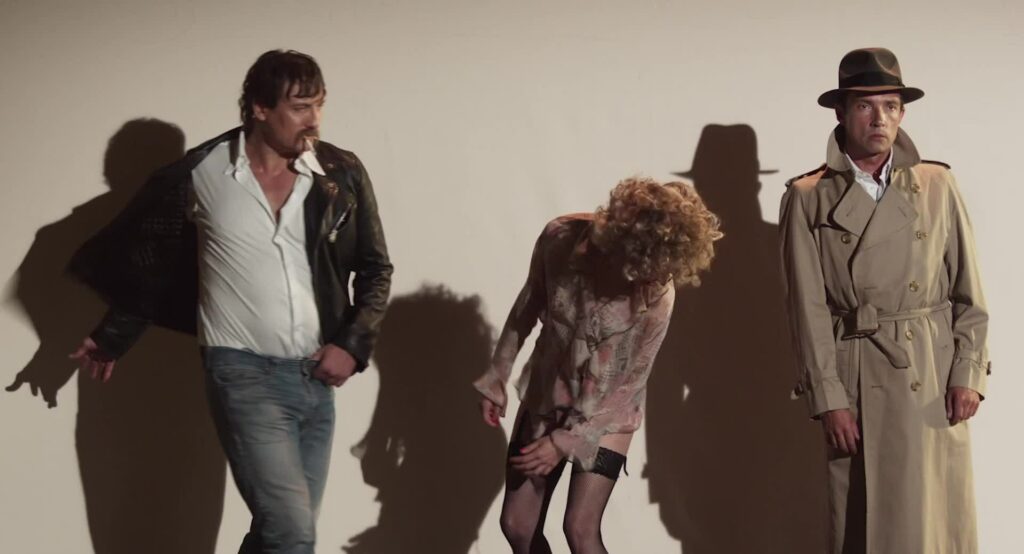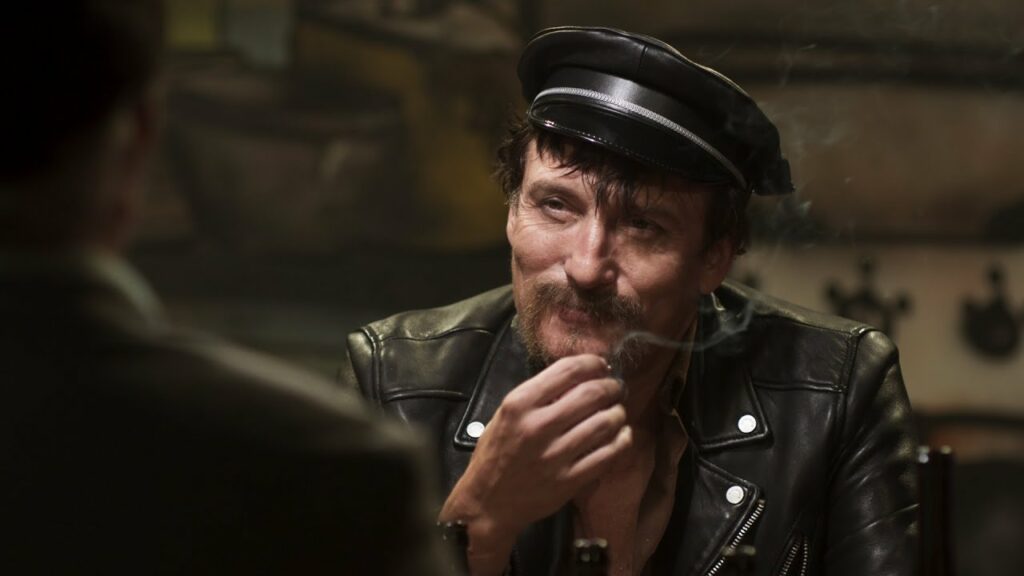“Each man kills the things he loves.” This quote from Rainer Werner Fassbinder’s Querelle appears at the start of Oskar Roehler’s biopic. It proves an apt description. Following the short, troubling and prolific life of one of German cinema’s most influential figures, Enfant Terrible shares many of its subject’s traits. It is an impulsive, provocative, and at times deeply troubling story brought to life with an impressively imaginative presentation. However, Roehler and writer Klaus Ritcher’s obvious infatuation with this notorious, influential filmmaker curses the film with a singular vision that it struggles to shirk.

Asides Fassbinder’s episodic turmoils and key moments, the most striking thing about Enfant Terrible is its look. The entire film is set in a mixture of lucidly coloured film and theatre sets, even those moments that take place outside the walls of a studio. Fassbinder infamously struggled to keep his personal and professional lives separate, his creative fantasies bleeding into his reality. This almost maddening fusion of fiction and reality lends Enfant Terrible an irresistibly decadent style, bright purples and basking stage lights streaking across the on-screen action. At times it works almost as a distraction from Fassbinder’s toxicity and tragedy, yet Roehler is careful never to let the aesthetics overcome the story, fusing style with substance to capture a world seen through Fassbinder’s eyes.
Oliver Masucci brings Fassbinder to life in all his sadism and extravagance. His performance is central in at least trying to make this story move beyond the ‘troubled white male artist’ cliché. Masucci’s volatility and range help to bring out Fassbinder’s capacity to love as much as destroy, and when needed brings the two out together in a way that further foreshadows his eventual demise. The physical and emotional deterioration Fassbinder experiences unfolds gradually, and its severity only hits you as the film approaches its climax.

Unfortunately, Enfant Terrible is far more interested in the man himself rather than what he has done or what he represents. For a film that exceeds 130 minutes, you would expect far more attention to be paid to his extensive filmography. Sizeable elements of his past are also cut out, including the physical violence and emotional abuse he reportedly enacted on one-time romantic partner Irm Hermann. Instead, Fassbinder’s creative process, and his volatile proclamations about it all being in the name of pure art, occupy the focus. Frustratingly, there is little room for anything else. Only late on is introspection forced onto the main character, in a scene that uses heightened tension to hide the fact that it doesn’t feel convincingly embedded into the rest of the story.
Enfant Terrible is too saturated by its protagonist to see beyond him. The film ends suddenly when his story is resolved, the fates of any surviving characters feeling inconsequential (there is no on-screen text explaining what happened next, as you might expect from a biopic). Often Roehler’s film is moving, electric and tragic all at once. The obvious appreciation of Fassbinder’s work and the challenges he faced ground Enfant Terrible in an emotional and sometimes sensational way. This same appreciation, unchecked, stops it from feeling like the complete picture of Fassbinder and those whose lives he impacted that it could well have been.
Enfant Terrible was screened as part of the BFI Flare Festival.
